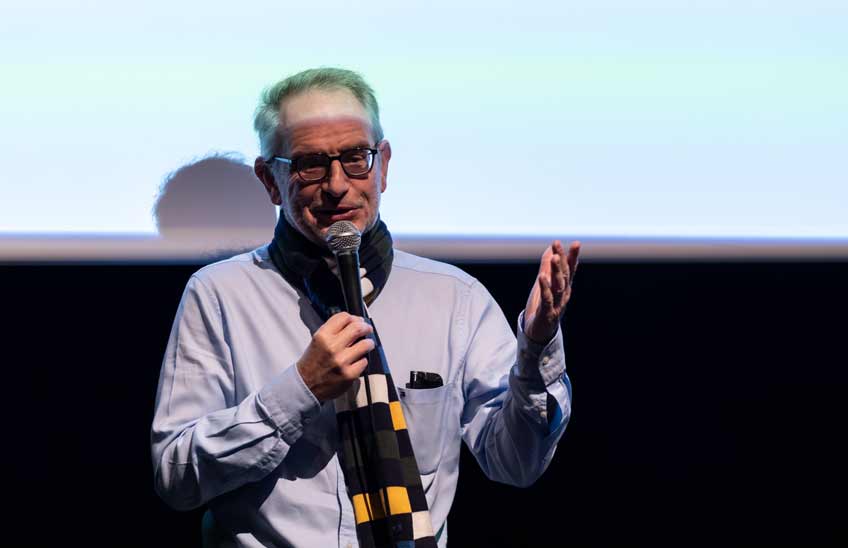Javier Novo, on evolution: "If we could rewind the tape of life on the planet and play it again, the result would not be very different from the one we have today".
The fourth session of the "Science and Evolution" series, organized by the Science Museum of the University of Navarra, brought together 70 people at the Civivox Iturrama.

12 | 12 | 2023
Seventy people participated in the fourth session of the "Science and Evolution" series, organized by the Science Museum of the University of Navarra, with the aim of explaining the concept of evolution to the general public in an informative way, goal .
Under the degree scroll "The evolution that could have been: of extinctions and dinosaurs", Javier Novo, Full Professor of Genetics of the University of Navarra, explained the convergence in evolutionary history, i.e., what could have happened in history if certain events had not occurred.
Professor Novo has made a historical review since the Cambrian period, breaking down how the five great extinctions of history have occurred, and analyzing what has been the evolution of species. To support his explanations, Novo showed on screen different types of fossils, and cited some theories of renowned authors in the subject, such as paleontologists Stephen Jay Gould ("Wonderful Life") and Simon Conway Morris ("The Crucible of Creation").
For Novo, evolution is a historical, cyclical and predictable process, governed by the physical-chemical constants of the planet, where there are processes that are more likely to occur again. On the other hand, Novo has pointed out that "we do not know what would have happened if the great extinctions had not occurred", but he qualifies that the evolution of primates and mammals would have slowed down a lot.
On evolutionary convergence, the professor explained that in primate brains we observe behaviors similar to those of humans, in the same way that we can see signs of intelligence in some birds, as an inheritance from dinosaurs. "If dinosaurs had had 60 million years to evolve, their brains could have evolved into a more intelligent one".
For Novo we are in a cultural evolutionary process where "the next evolution is going to be artificial intelligence". In this sense, he points out that, although our brains have not evolved much since Neolithic times, technology has an impact on the brain's development , which causes some qualities to slow down and others to develop further.
This cycle has been developed thanks to the partnership of Civivox Iturrama, Spanish Foundation for Science and Technology (FECYT) / Ministry of Science and Innovation, American Museum of Natural History in New York, high school El Molino, Pamplona Planetarium, Caja Rural, Acunsa, and the Dinosaur Museum of Salas de los Infantes (Burgos).




